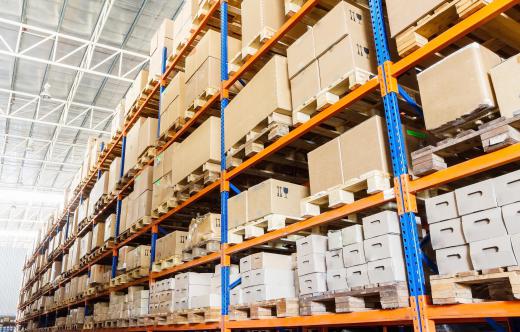When a consumer purchases goods directly from the manufacture, it is referred to as buying factory direct, or making a direct buy. The factory direct option was facilitated in the 1990s by the development of e-commerce and through distribution of catalogs. Major factories, like Dell Computer, started marketing products directly to their market, rather than going through a traditional tiered sale system. Some consumers prefer to buy goods factory direct, as they tend to be less expensive.
Traditionally, a manufacturer makes items and sells them to a distributor. The distributor, in turn, sells the product to retailers. Each step in the chain increases the end cost of the item, and it also serves as insurance for the step before. For example, a factory can confidently invest a great deal of money in developing and manufacturing a product, because it knows that distributors will purchase it, allowing the factory to recoup its costs immediately. Likewise, a distributor sells to a retailer, covering their expenses, leaving the retailer to sell the product to consumers.

Some wholesale distributors skip the retailers, selling directly to consumers from their warehouses. This is known as wholesaling, and it can be an excellent way to get a good deal on products, if consumers are willing to visit wholesale warehouses and look for bargains. Most discount stores operate in this fashion, purchasing products from the manufacturer directly and offering them to consumers at a price which is cheaper than retail. Most of these businesses also have online storefronts, but actually visiting the warehouse is more likely to yield a deal, as the stock changes constantly.

When a consumer buys a product directly from a factory, it is assumed that it will be cheaper, because it has not traveled through the retail chain. This is not actually always the case. In the instance of a manufacturer which specializes in factory direct sales, the products will be held at a cheap and affordable price. But if the manufacturer also sells to distributors and retailers, the prices may be artificially inflated so that the manufacturer is not competing with the companies which retail the product. Some investigation should be undertaken before buying factory direct for this reason.
In many cases, consumers do not actually go to the site of the manufacturer to buy factory direct, but order it through phone, mail, or Internet catalogs instead. This means that the consumer has less control over the quality of the product, and it is advisable to understand the return policy on factory direct purchases before making them. Some manufacturers are amenable to returns on products which do not meet customer needs, while others do not accept returns, or will not offer full credit unless the merchandise is clearly damaged.
In other cases, a manufacturer will set up a storefront for factory direct sales. These outlet stores often feature surplus and older products, although they are in perfectly usable condition. Unlike a retail store, an outlet store will not necessarily stock a wide variety of colors, sizes, or designs, as the focus is on moving available merchandise, rather than creating an assortment of stock for consumers to choose from. As with mail ordering, consumers should take note of return policies.
Ever since she began contributing to the site several years ago, Mary has embraced the exciting challenge of being a About Mechanics researcher and writer. Mary has a liberal arts degree from Goddard College and spends her free time reading, cooking, and exploring the great outdoors.

